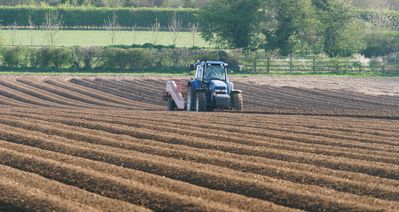Court bans paraquat use

Paraquat, the active ingredient in Gramoxone and other similar herbicides, is to be banned throughout the EU after an unprecedented court action in Sweden.
The chemical controls a broad spectrum of weeds.
Widely used in the UK since the 1960s, but banned in Sweden since 1983, paraquat joined the EC’s Annex 1 list of authorised substances in 2003 after being reviewed in a process overseen by the Pesticides Safety Directorate.
But Sweden, supported by Austria, Denmark and Finland, where paraquat is also already banned, pleaded to the European Court that paraquat be removed from the list.
It alleged that the review procedure was faulty and failed to protect the environment and human and animal health, claims the court largely upheld.
Paraquat’s withdrawal would be a severe blow, especially to potato producers who used it on most of the crop, said NFU plant health adviser Paul Chambers.
“It’s definitely not good news.”
He said many growers stressed the herbicide’s importance as a pre-emergence contact weed-killer, such as those on peaty soils where residual herbicides were less effective.
“The only alternative contact product I can think of, carfentrazone-ethyl glyphosate cannot replace its use in all situations.”
Paraquat was a key herbicide for growers of vegetables and other so-called minor crops such as hops, he added.

“Overall the NFU is very keen to retain paraquat and paraquat mixtures as important weed control options for which alternatives do not exist in all sectors.”
Although glyphosate had largely replaced it for cleaning cereal stubbles, paraquat was useful when conditions were cold and wet and rapid weed kill was needed, noted Syngenta’s Pat Ryan.
It was also valued by growers who could not risk glyphosate drift damage onto perennial crops.
The Swedish court action was “unique”, according to Dr Ryan. “It’s never happened before, and I’m concerned that it starts to undermine the whole regulatory system.”
DEFRA is considering the UK response.
| Court’s decision means: |
|---|
|

